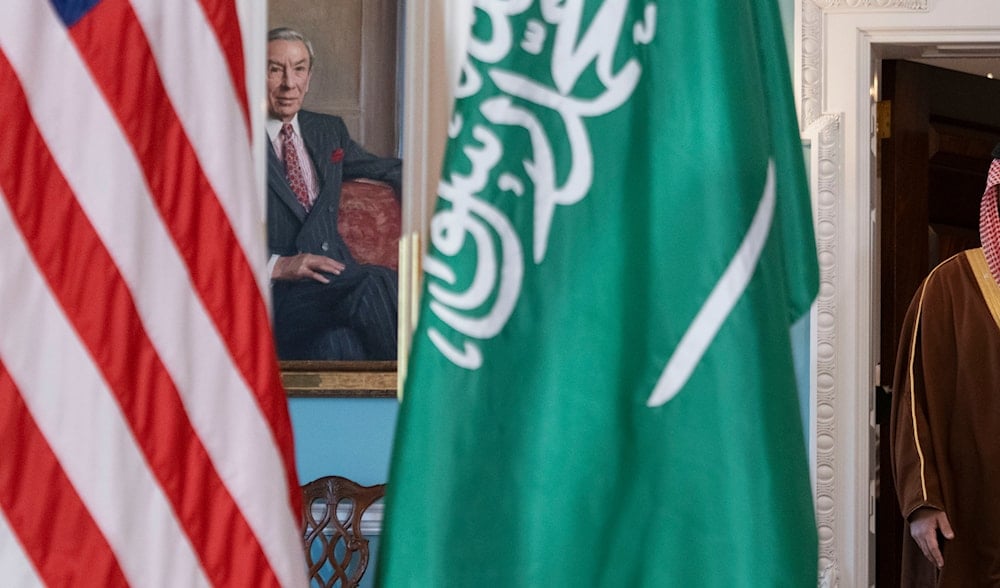Gulf states concerned of Trump's potential anti-Iran approach: FT
Trump's past support for "Israel" and expected appointments of Iran hawks have Gulf leaders concerned that his policies could further embolden Netanyahu and risk tensions with Tehran.
-

The flags of Saudia Arabia and the US are pictured on Wednesday, Nov. 1, 2023, at the State Department in Washington (AP Photo/Jacquelyn Martin)
The Financial Times on Tuesday reported that Saudi Arabia and the United Arab Emirates (UAE) are signaling a commitment to maintaining their recent de-escalation efforts with Iran, while they prepare for the potential impact of Donald Trump's return to the White House.
Although Gulf leaders like Saudi Crown Prince Mohammed bin Salman were ardent supporters of Trump's hardline policies on Iran during his first term, recent developments have led them to favor diplomacy over confrontation with Tehran, concerned that renewed hostilities could undermine regional stability.
Cautious rapprochement
In recent years, Riyadh and Abu Dhabi have pursued a cautious rapprochement with Iran, motivated in part by doubts about US commitment to Gulf security, the report noted.
This shift has been underscored by a series of diplomatic moves, including a 2023 China-brokered agreement to restore ties between Saudi Arabia and Iran.
According to the Financial Times, this diplomatic pivot was influenced by attacks like the 2019 missile and drone strike on Saudi oil infrastructure, which rattled confidence in the US security umbrella after Washington's restrained response.
Now, with the Middle East on edge following the outbreak of the war on Gaza, both Gulf states are keen to avoid being drawn into escalating conflicts.
At a recent Arab-Muslim conference in Jeddah, bin Salman reiterated Saudi Arabia's commitment to de-escalation, condemning Israeli strikes on Iran and labeling the situation in Gaza as "genocide."
Read more: Pezeshkian, MBS discuss ties as Arabs head to OIC summit
Meanwhile, UAE presidential advisor Anwar Gargash called on the incoming Trump administration to adopt a "comprehensive" approach to regional peace rather than "piecemeal" strategies.
Trump, who has previously boasted about his ability to broker deals, has promised to seek peace in the Middle East, yet his past support for "Israel" and expected appointments of Iran hawks have Gulf leaders concerned that his policies could further embolden Israeli Prime Minister Benjamin Netanyahu and raise tensions with Iran, risking conflict spillover into the Gulf.
Stability as priority
Despite these concerns, both Saudi Arabia and the UAE value their relationships with Trump, who maintains close ties with Gulf leaders, the Financial Times report highlighted.
It mentioned that Trump's son-in-law Jared Kushner and former Treasury Secretary Steven Mnuchin, for example, have received substantial investments from Gulf sovereign wealth funds.
However, the Gulf states have expressed a preference for a policy approach that prioritizes regional stability and economic growth, with one Saudi official noting that peace and development are central to the kingdom's long-term vision.
Read more: Trump's return signals major shake-up in foreign policy: The Guardian

 3 Min Read
3 Min Read








